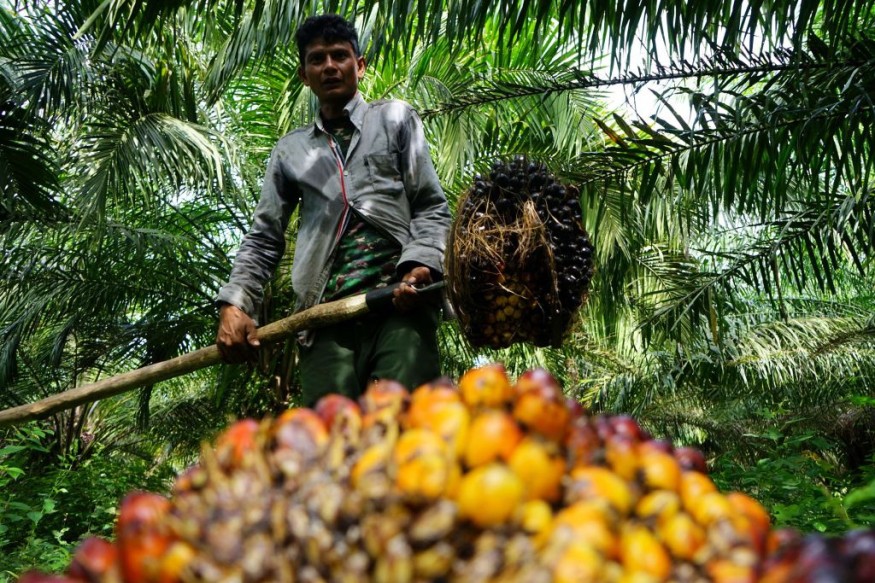For years, there has been a debate about the environmental impact of oil crops, such as palm oil and soy.
Some people believe that these crops are inherently bad for the environment, while others believe that they can be grown sustainably.
A recent report by the International Union for Conservation of Nature (IUCN) sheds light on this complex issue
The Truth About Oil Crops: It's Not the Crop, It's How We Grow It

The report argues that the impact of oil crops depends on the practices used to grow them. Deforestation, for example, is a major driver of environmental damage in the oil crop industry.
When forests are cleared to make way for oil palm plantations, it can release large amounts of carbon dioxide into the atmosphere and destroy wildlife habitat.
Sustainable Oil Crop Production is Possible
The good news is that it is possible to grow oil crops sustainably. The IUCN report highlights a number of practices that can help to reduce the environmental impact of oil crop production. These practices include:
- Using Certified Sustainable Palm Oil (CSPO)
- Reducing deforestation
- Improving agricultural practices
- Protecting biodiversity
CSPO is palm oil that has been produced according to a set of environmental and social standards. These standards help to ensure that palm oil is grown in a way that minimizes deforestation and protects biodiversity.
Reducing deforestation is another important step towards sustainable oil crop production. There are a number of ways to reduce deforestation, such as improving yields on existing plantations and finding alternative sources of land for new plantations.
Improving agricultural practices can also help to reduce the environmental impact of oil crop production. For example, farmers can use less fertilizer and pesticides, and they can adopt practices that help to conserve soil and water.
Protecting biodiversity is essential for sustainable oil crop production. Oil palm plantations can provide habitat for a variety of wildlife species. However, it is important to manage plantations in a way that minimizes the impact on wildlife.
The IUCN report concludes that the future of the vegetable oil industry depends on a shift towards sustainable practices. By adopting these practices, the industry can reduce its environmental impact and contribute to a more sustainable future.
The Socio-Economic Benefits of Sustainable Oil Crop Production
In addition to the environmental benefits, sustainable oil crop production can also have positive socio-economic outcomes.
A recent report by the International Institute for Sustainable Development (IISD) found that smallholder and local oil production systems can contribute to poverty reduction, rural development, and food security.
The IISD report recommends a systemic approach to addressing challenges in the vegetable oil industry. This approach would involve collaboration between governments, traders, farmers, and processors.
By working together, these stakeholders can develop and implement sustainable practices that benefit both the environment and society.
The Palm Industry: A Complex Issue
The palm industry is a complex issue with both positive and negative impacts. On the one hand, palm oil is a versatile and productive crop that can be used to produce a wide variety of products, from food to fuel.
The palm oil industry also provides jobs and income for millions of people around the world.
On the other hand, large-scale palm oil production has been linked to a number of environmental problems, including deforestation, loss of biodiversity, and habitat destruction for orangutans.
These environmental concerns have led to calls for a boycott of palm oil.
However, not all palm oil is produced in the same way. Small-scale palm oil production can be beneficial for the environment and local communities.
Small-scale producers are more likely to use sustainable practices, such as intercropping and crop rotation. They are also more likely to set aside land for conservation.
The future of the palm industry depends on finding a way to balance the economic benefits of palm oil production with the environmental costs. This will require a concerted effort from governments, businesses, and consumers.
What Consumers Can Do
Consumers can play a role in promoting sustainable palm oil production by choosing products that contain certified sustainable palm oil (CSPO).
SPO is palm oil that has been produced according to a set of environmental and social standards. These standards help to ensure that palm oil is grown in a way that minimizes deforestation and protects biodiversity.
By choosing CSPO products, consumers can send a message to the palm oil industry that they demand sustainable practices. This can help to drive change in the industry.
The future of the vegetable oil industry is bright.By adopting sustainable practices, the industry can reduce its environmental impact and contribute to a more sustainable future.
This will benefit not only the environment but also the people who depend on the industry for their livelihoods.
Related article: Palm Oil: The Common Household Ingredient that Harms the Climate
© 2026 NatureWorldNews.com All rights reserved. Do not reproduce without permission.





